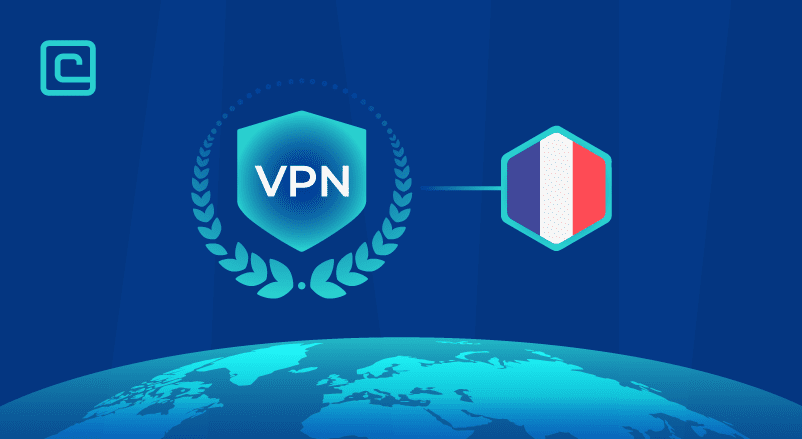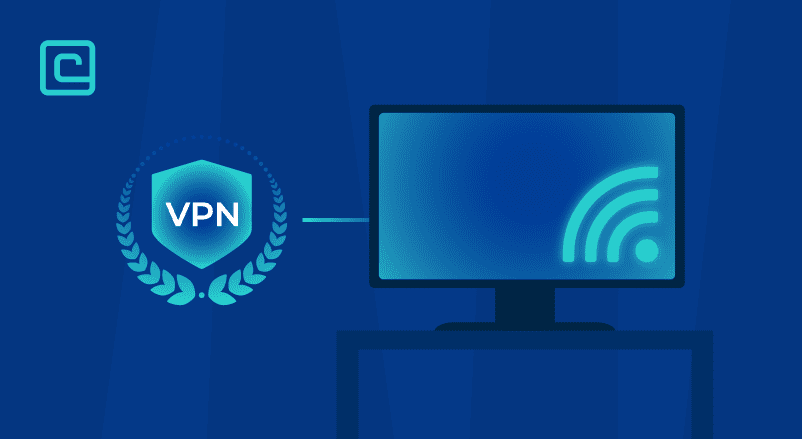VPN vs VPS Comparison – Which is Better?

The question of VPS vs VPN is a problematic one. Except for using virtualization and a similarity in their acronyms, they share nothing with each other. Even their domains of applications are different, which makes this a bit of a funny exercise.
But it does call for some observation as both use similar technology to provide a service that improves your overall web experience. So, in the VPS vs VPN debate, which one is actually better?
VPS and VPN are different concepts and have different applications. While a VPS provides access to low-cost virtual servers, a VPN encrypts and routes your traffic to protect your privacy online. One lets you use a virtual computer, while the other lets you surf the web safely and securely.
There is a lot more to unwrap in these concepts, which will make their benefits clearer. In this article, we’ll explain what VPN and VPS are, how they are useful, and why you should consider them.
What is a VPS?
A VPS, short for virtual private server, is a system that offers you virtual resources to host a website, store data, or run an app. It’s a virtual version of a physical server i.e., a computer running an operating system like Windows Server. A VPS then allows you to do everything you would do with a physical server but only remotely.
Also known as VPS hosting, a virtual private server is a low-cost alternative to buying a physical server. For the latter, you would need a computer with high specifications, not to mention the physical space and power resources to run and maintain it. With a VPS, you can own a part of such a system.
How Does a VPS Work?
In most cases, a virtual private server is a part of a larger virtual server created by a hosting company. It uses the concept of virtualization to bifurcate or earmark a chunk of the server’s resources to each user. Users can choose the resources according to their needs, which are customized using a system called a hypervisor. For instance, a business running an ecommerce website in the US will use one chunk. While another business in another field will host a website from China. There can be more than two users who can buy such VPS hosting that is part of one principal virtual server.
In other words, a VPS is like a prepare-your-own-server setup. You buy a part of a virtual server built by a hosting company and pay for it. Its biggest advantages are that it removes the vulnerability of shared hosting and keeps the expenses down. Especially when compared to a dedicated or physical server.
The major applications of VPS are remote hosting, P2P networking, data storage, and testing product environments. For example, if you wish to run a website securely, you can do so using a VPS. While it does not provide a dedicated server, you can customize it according to your needs. This is why VPS is more of a contender to be compared with shared hosting rather than a VPN.
VPS vs Shared Hosting
A shared hosting always carries the risk of a DDoS attack. If a hacker chooses to attack a host server, all the computers (connections) on that server will be affected. A VPS avoids such DDoS attack risks as each private server is maintained as an individual entity.
A VPS is like the best of both worlds: safe like a dedicated server and cheap unlike a physical server.
Test Your VPN Knowledge – Take A Quiz!
Who Should Use a Virtual Private Server?
A virtual private server can be used by anyone for the following applications.
- Host websites remotely
- Host mid-sized, high-traffic websites more securely
- Store data as an alternative to the cloud (for backups)
- Upgrade from shared hosting
- As a sandbox and testing environments
- Host a game server
- Install, run, and test software
VPSs are typically preferred by network administrators.
Pros and Cons of Using a VPS
The advantages and disadvantages of using a VPS are as follows:
| Pros | Cons |
| Cost-efficient remote hosting | Expensive than shared hosting |
| More secure and safer than shared hosting | Requires server operating system knowledge |
| Resources can be customized | |
| Variety of applications |
What is a VPN?
A VPN, short for virtual private network, is a software that encrypts your web traffic and tunnels it through a distant server. These two actions both hide your IP address and protect your communication against tracking and snooping. VPNs are popularly used for protecting privacy while surfing the web, unblocking regional restrictions, and downloading content anonymously.
How Does a VPN Work?
VPN explanation: A VPN is technically a privacy software as opposed to VPS being a hosting concept. A VPN company such as NordVPN uses its network of servers to tunnel your web traffic. This effectively hides your IP address and makes you nearly anonymous. It also encrypts your traffic during the process to detach yourself from your web activities. This helps avoid snoopers like your own ISP or a law enforcement agency from accessing your traffic.
Some of the best VPNs are NordVPN, AtlasVPN, and PrivateVPN. These companies have been around for years and have a good reputation for offering top-notch VPN services. They also boast huge server networks, auxiliary features, and advanced facilities like onion routing.
Who Should Use a VPN?
VPNs are suitable for everyone. If you use the web in any capacity, a VPN is a must-have privacy software. We should note that using a VPN is not a necessity but a wise, practical decision as it protects your identity and privacy.
However, to make a VPN’s applications clearer, here’s a list of primary user groups who should use it:
- Web users in general
- School and college students
- Corporate employees and work-from-home professionals
- Writers and journalists
- People who torrent or download files from the web
- Social media users
- Tourists
- Businesses and enterprises
To reiterate, using a VPN is optional. Many users around the world still surf the web without a VPN or any kind of privacy protection. They claim nothing has happened to them so far, so it’s likely nothing will happen to them in the future. This only highlights the need to use a VPN as a preventive measure. On the world wide web, you can never be sure of what could go wrong. And even if nothing goes wrong, it’s better to hide your tracks.
Pros and Cons of Using a VPN
The advantages and disadvantages of using a VPN are as follows:
| Pros | Cons |
| Protects your privacy online | Additional expense |
| Helps change IP address | Slows down your internet speed |
| Helps access geoblocked content | Cheaper VPNs are prone to blacklisting |
| Hides your web activities |
Differences Between VPS and VPN
As we have seen so far, the differences between a VPS and a VPN lie primarily in their domain and operating principle. They are wildly different concepts and have equally different applications.
To drive this comparison home easily, here’s a table of differences between a VPN and a VPS:
| Virtual Private Server | Virtual Private Network |
| Virtual web hosting system | Privacy software |
| Low-cost and safer alternative to shared hosting | Groundbreaking technology used to hide one’s tracks online |
| Customizable | Offered as an application; cannot be customized |
| Offered by web hosting companies | Offered by online security companies |
| Fewer options | Large number of options |
| VPSs do not come for free | Some VPN apps are available for free |
| Used by network engineers and website administrators | Used by all types of web users |
| VPS provider examples: GoDaddy, Hostgator | VPN provider examples: NordVPN, ExpressVPN, AtlasVPN |
Why is a VPS Compared with a VPN?
We suspect that the VPS vs VPN debate must have originated from the similarity in either their acronyms or their applications. Although not a common use case, a VPS is sometimes employed to create a VPN server.
As you can see, both have distinct operating principles and are not even part of the same domain. While VPS is a web hosting concept, a VPN enables private communication. In an ideal case, both concepts can be used together depending upon the applications.
Using a VPS as a VPN – Is It Possible?
Yes, it is possible to set up a VPS as a VPN. But it’s a long and complex process, which is usually created by network engineers looking to create a private channel or a sandbox. For most users, using a VPN app is a more affordable and easier option.
To use a VPS as a VPN, you first need to purchase VPS hosting from a hosting company. Make sure you buy ample memory and disk space so that you can run a VPN app in it. Once you have set up the VPS, download and install a VPN software in the VPS. While the process to do so is beyond the scope of this article, it is similar to how you would install a VPN on your computer. Remember, this is why we mention that using a VPS requires some server OS knowledge.
Once the VPN is installed, you can route all your VPS communication through the software. Do note that your personal computer (that you use to access your VPS) will still be unprotected. You will need to install a VPN on your own system to get protection. In short, it’s not worth the trouble.
Can a VPS Behave as a VPN?
No, in its basic sense, a VPS does not possess the qualities of a VPN. Of course, it uses virtualization to create a remote server. But it is not a private network. You can use a VPS to communicate on the web but not privately. It is instead used to host a site, create a backup, or test an environment.
VPN vs VPS – Final Thoughts
We can now confirm that the VPN vs VPS debate is not the right question, can’t we? They are two distinct technologies used for distinct purposes. In this article, we have described these two concepts and noted their applications. While a VPN helps you communicate privately over the web, a VPS gives you access to an affordable remote server. Their domains are poles apart, making this comparison invalid.
We have also noted how these two pieces of technology compare with their counterparts. For instance, a VPS is a low-cost and better alternative to shared hosting. If you own and host a website, you can consider VPS as an upgrade option.
On the other hand, a VPN is an online security software used for both personal and commercial needs. It is a better application than, say, using a private browser or a proxy server. If you are someone who likes to use the web privately, you must explore a VPN’s benefits.
VPN and privacy researcher

